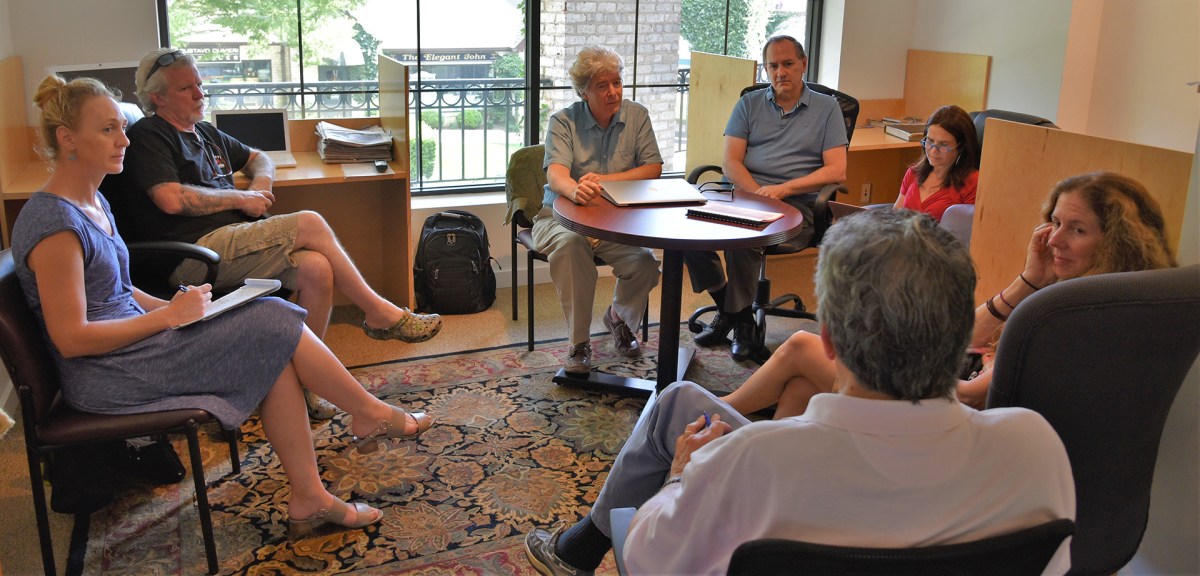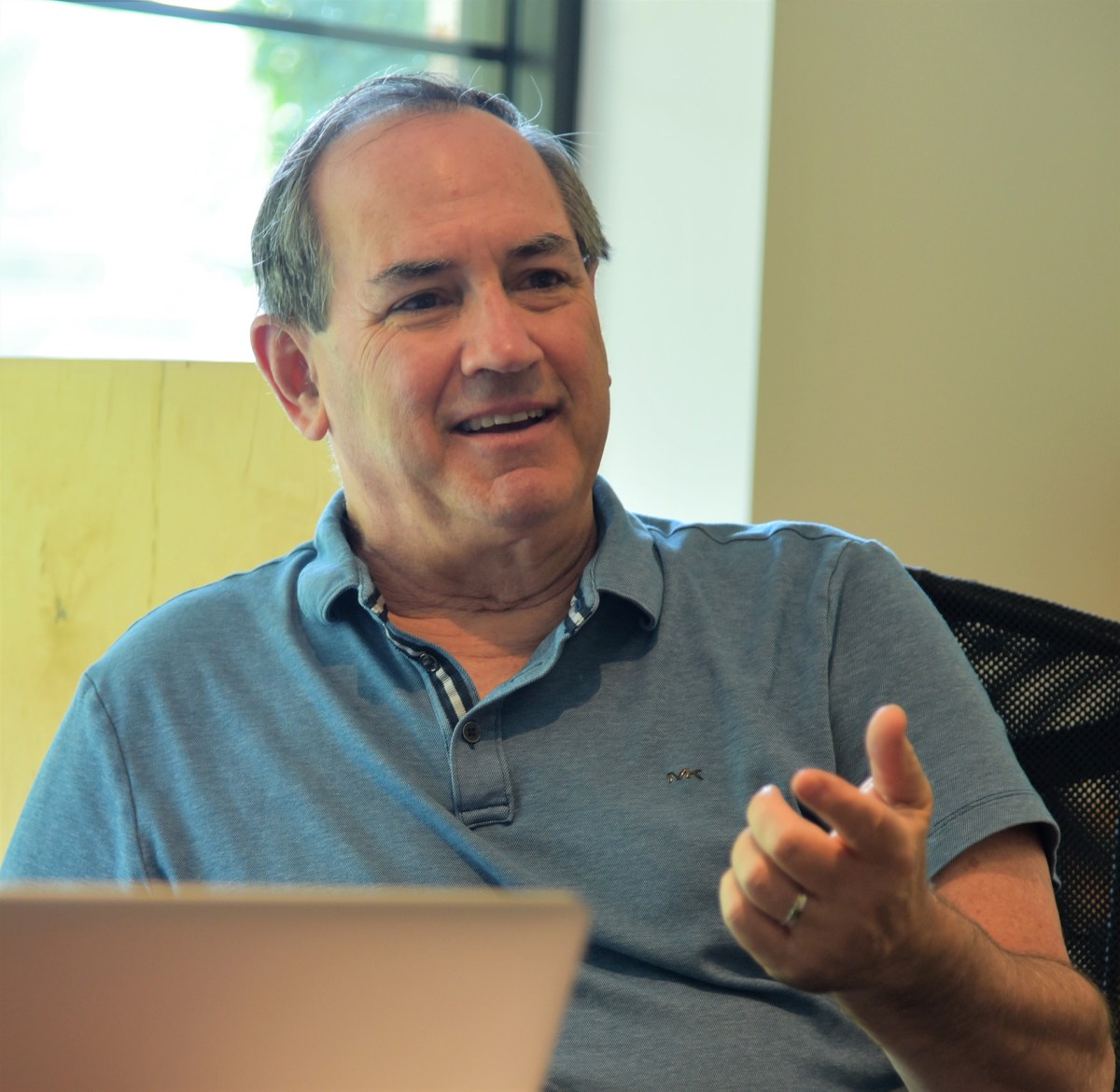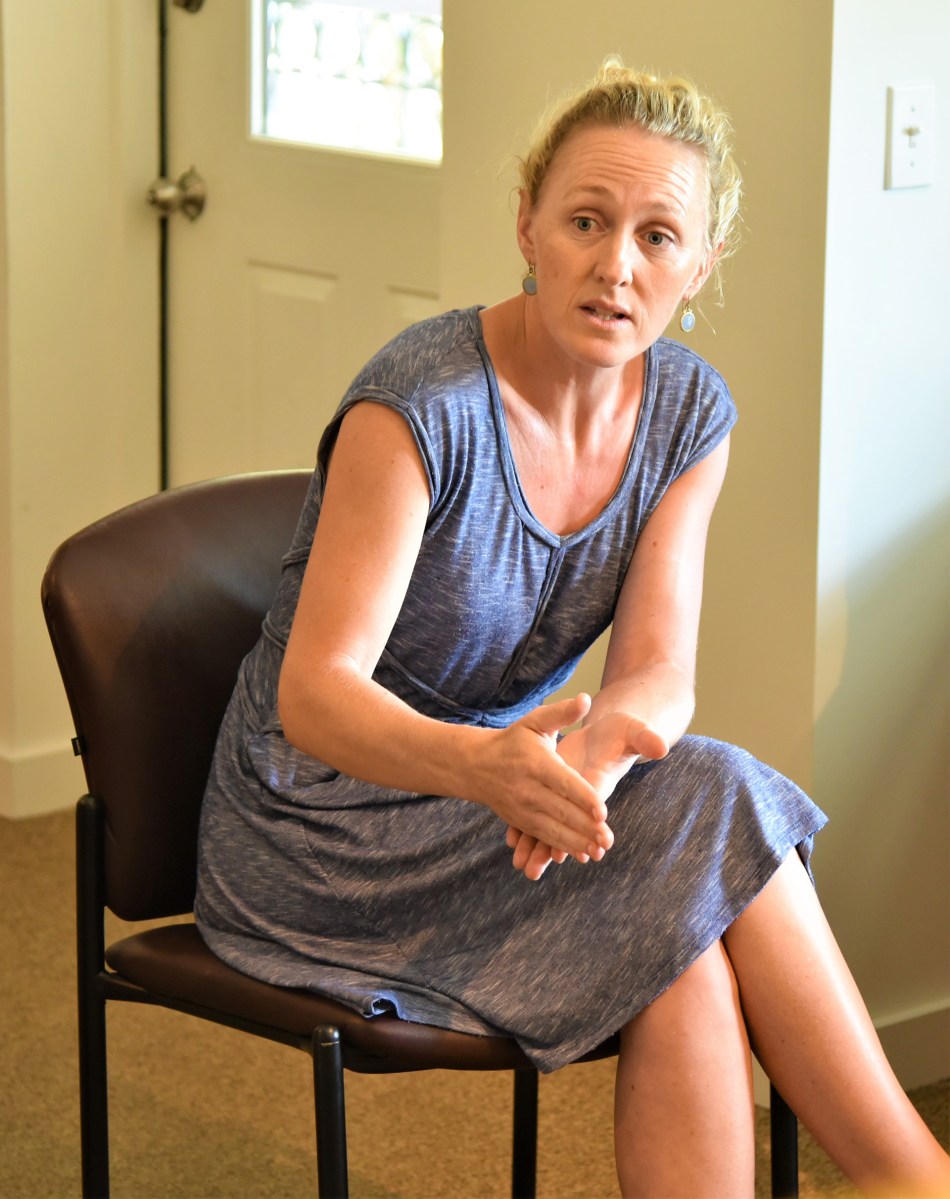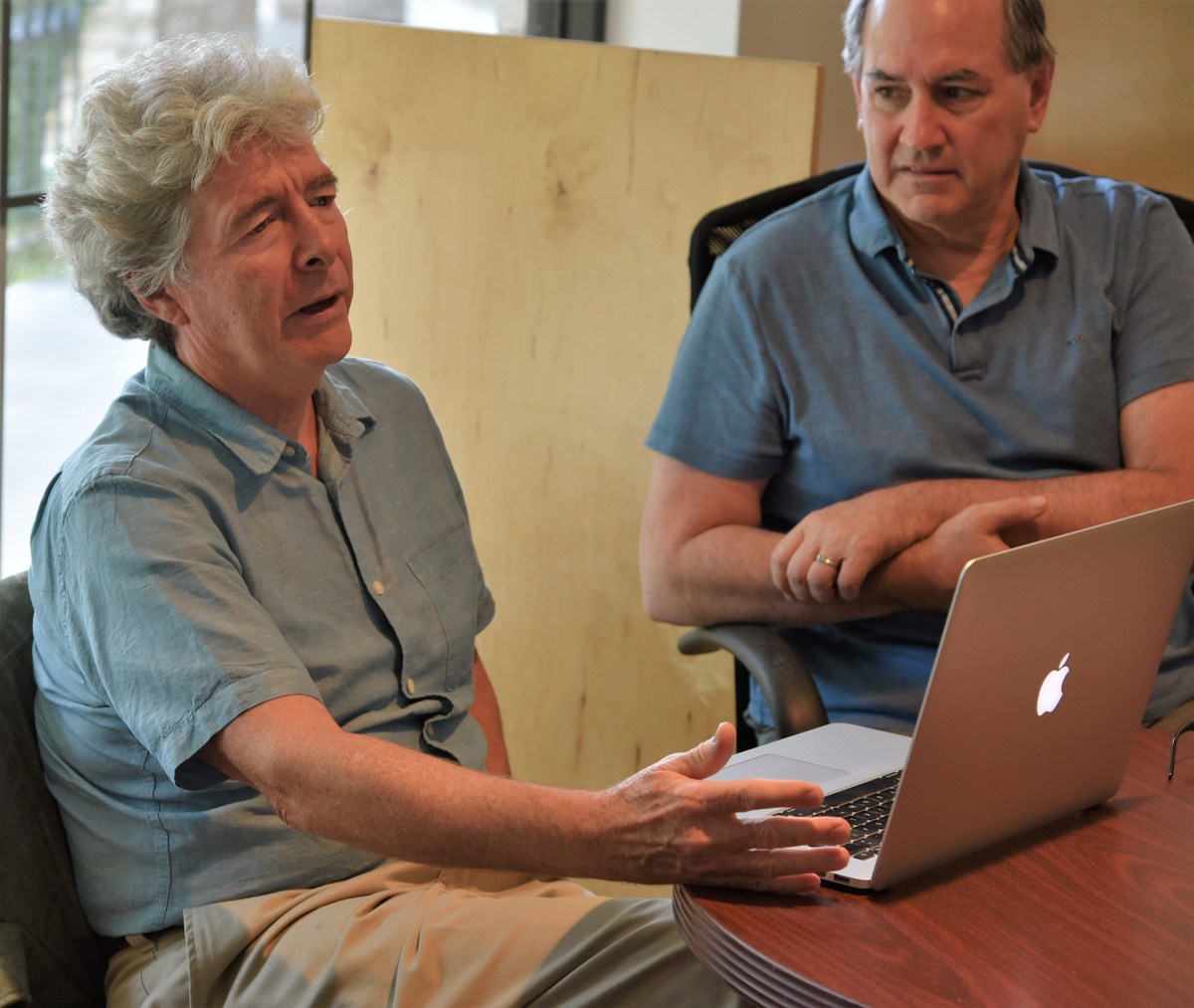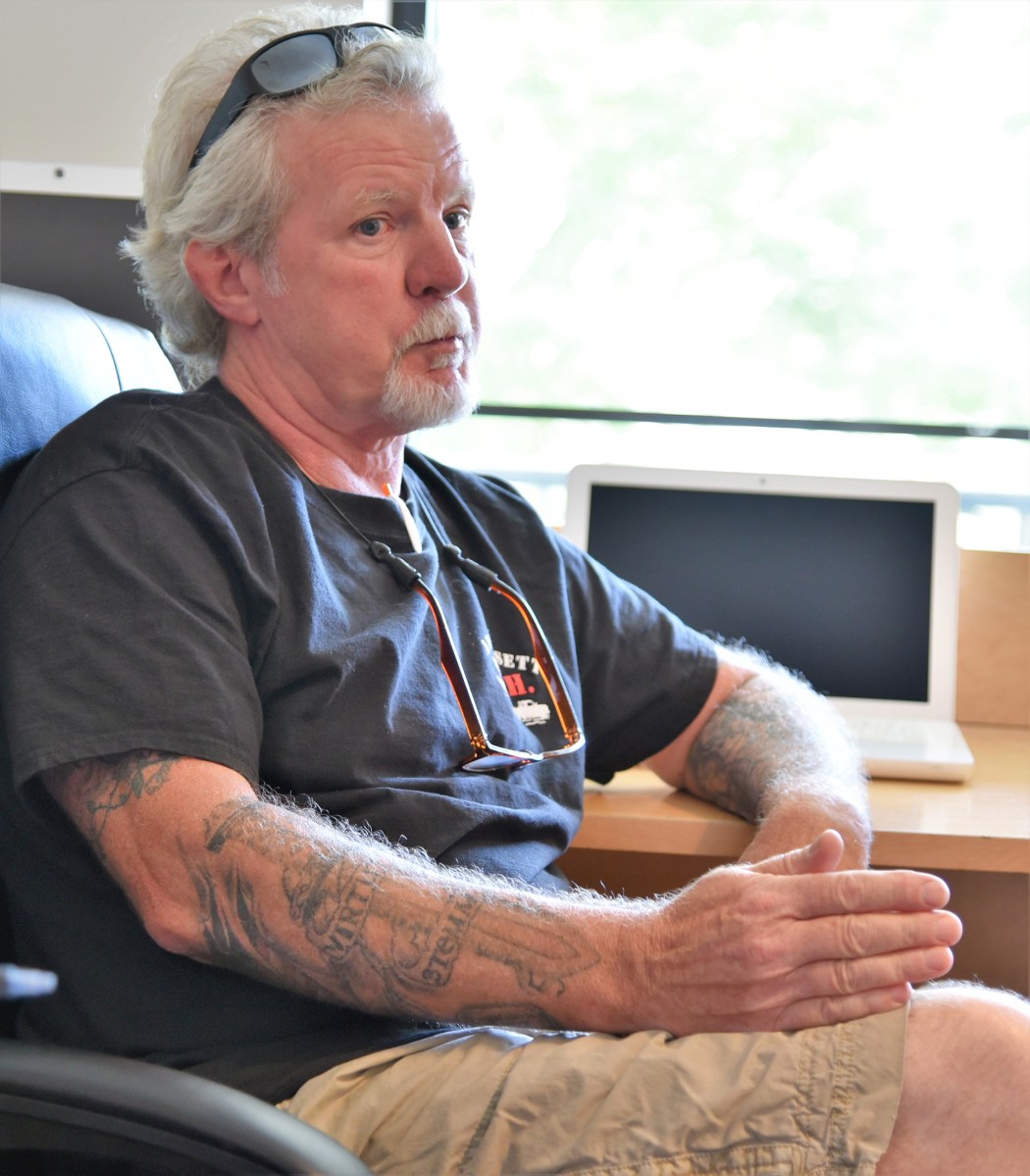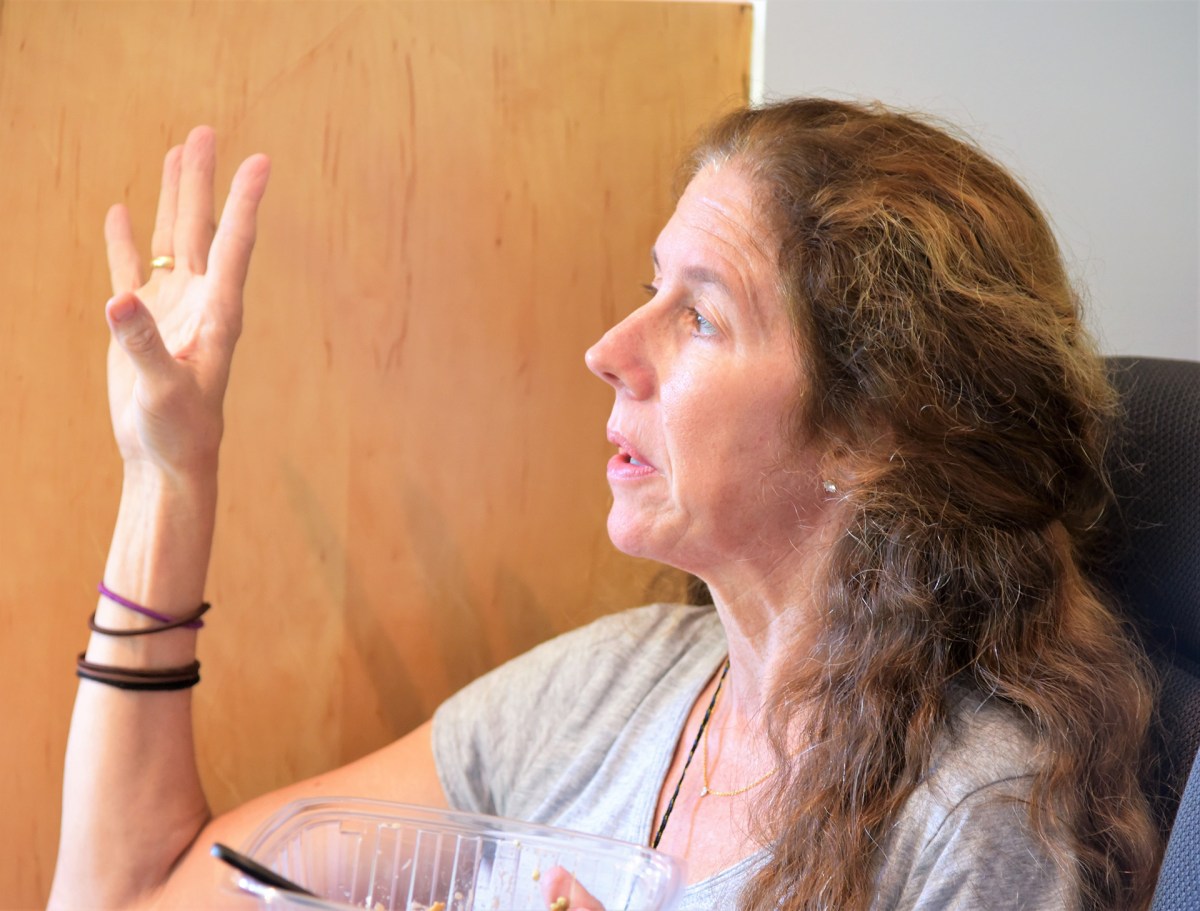Deepwater Opposition Grows
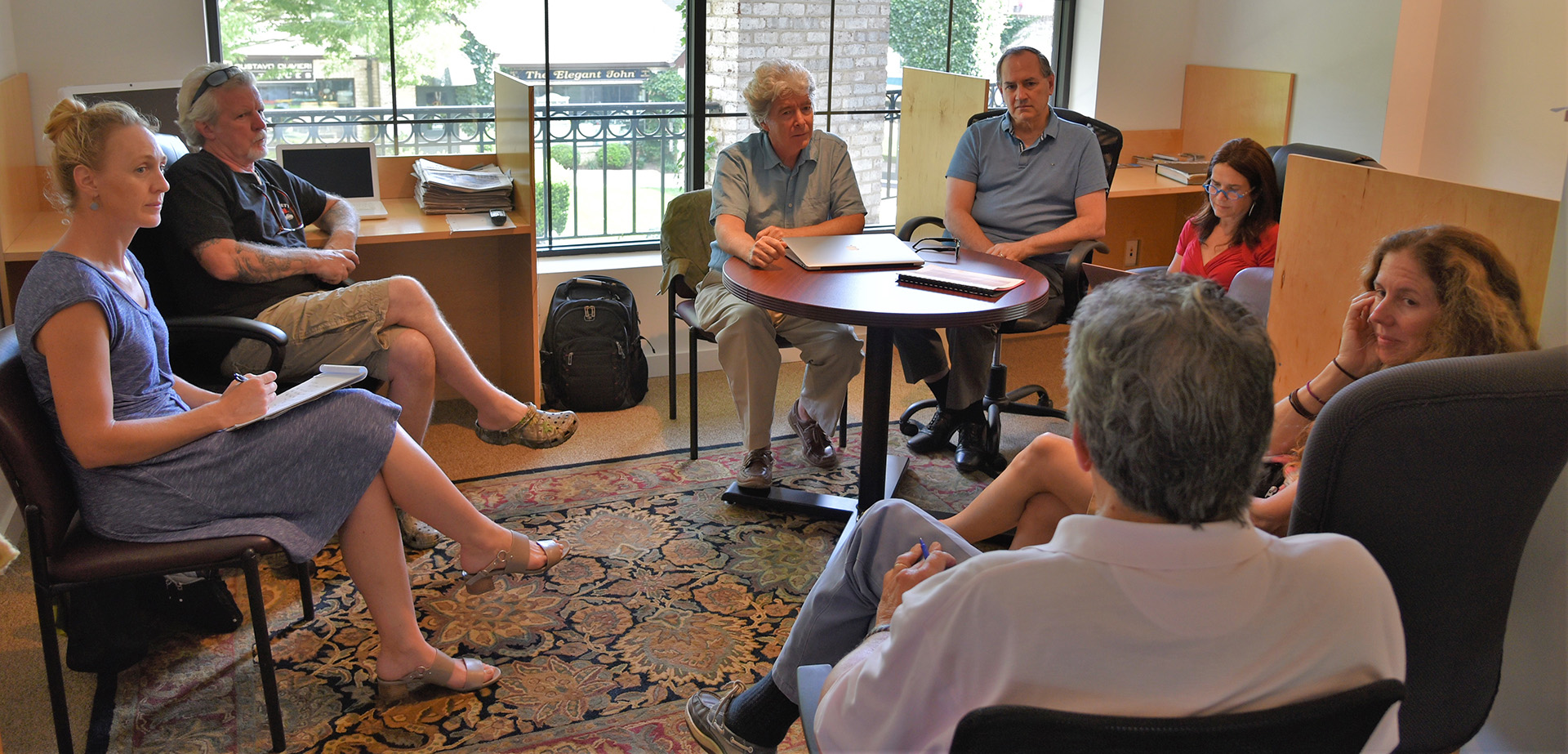
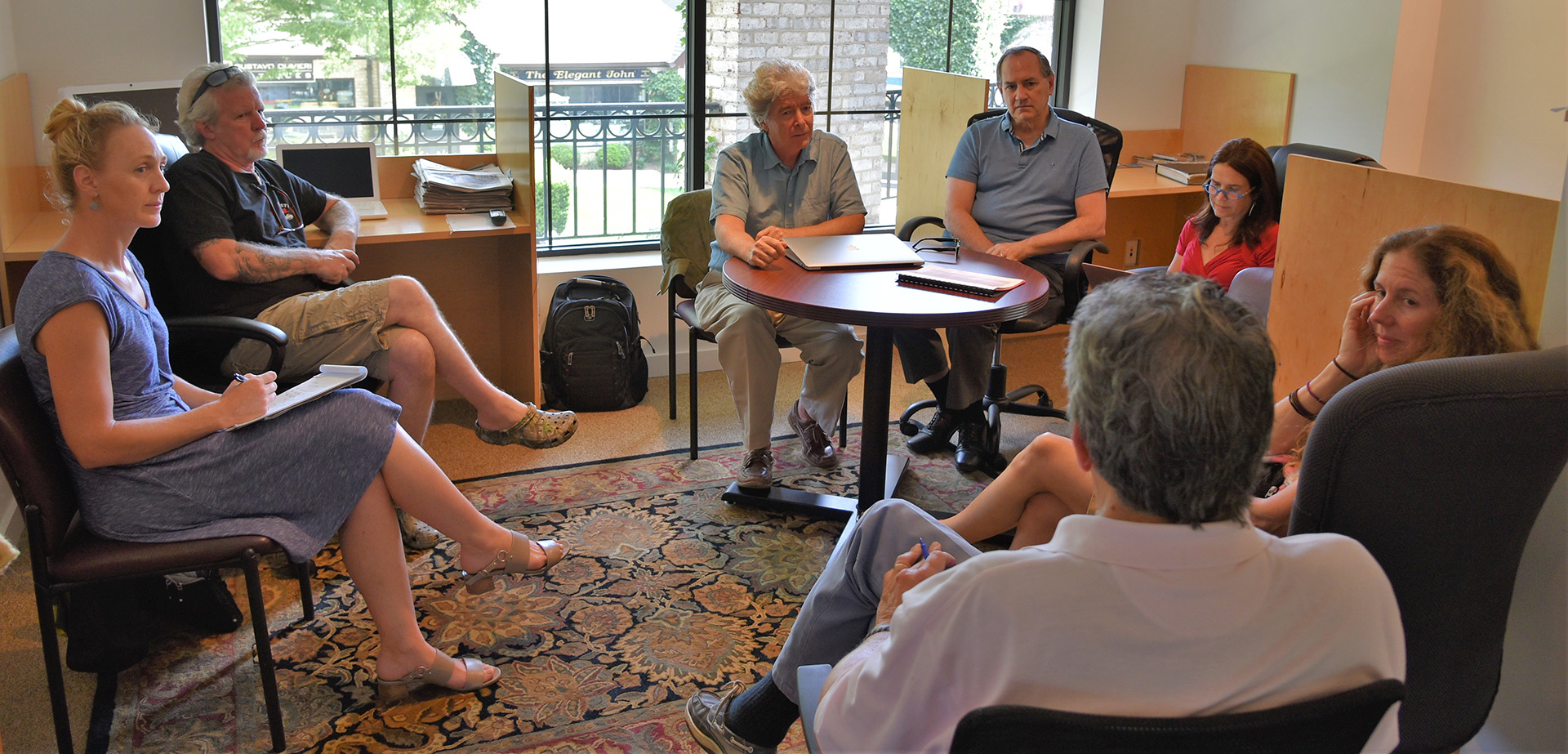
A group of prominent citizens opposed to the South Fork Wind project intend to form an entity to assure the offshore wind farm never makes land in East Hampton Town.
Many of the group’s members have been vocal opponents of Deepwater Wind, the parent company, since it announced plans to bring wind-driven energy into the town from offshore wind generators it intends to build off Montauk.
By formally coming together, perhaps by incorporation, the group will ensure it has a voice in a New York State review process called an Article VII should the project advance to that stage.
“We have all been both learners and teachers along the way to uncovering and understanding the real facts,” noted Zachary Cohen, one of the organizers. “Now we need to organize our knowledge and our group and prepare for the Article VII hearing.”
A handful of members attended an impromptu meeting at The Independent on August 4, among them Cohen, Rachel Gruzen Gary Cobb, Michael McDonald, and Bonnie Brady.
The group hopes the Article VII will never take place. The Town Trustees must first approve an easement to allow the South Fork Wind cable to come ashore by Beach Lane in Wainscott. The East Hampton Town Board recently approved it, with stipulations, by a 3-2 margin.
Deepwater Wind has vowed to bring the cable ashore on state parkland in Napeague should the Trustees fail to approve the easement. Those who attended the August 4 meeting believe Deepwater will pull out of the project instead.
“We are a group asking questions but not receiving answers,” said Gruzen, an environmental planner with a focus on coastal planning issues. She holds twin degrees from Yale.
Deepwater, all the attendees agreed, has been putting out misinformation and selling the town and the public a bill of goods. “It’s all about money,” said Brady, the Executor Director of the Long Island Commercial Fishing Association and a vociferous critic. She believes the wind generators will harm the fish supply in a number of ways, not only putting fishermen out of business but also robbing us of a food supply. “They get the tax credits. They don’t care,” she said.
McDonald, the Director of Public Health for the East End Resilience Network, agreed that consideration of off shore wind farms must also include, “making sure your protein source is resilient and sustainable.”
Most agreed that we are in the middle of a long-term project masterminded by New York Governor Andrew Cuomo, with PSEG the main beneficiary.
Cuomo forced the Long Island Power Authority to take on PSEG to run its daily operations in 2013. Cuomo blasted away at LIPA for being “wasteful, expensive, and incompetent — a bad combination of things, especially in a utility company.” No LIPA officials or trustees were at the signing ceremony.
The project was carefully crafted so that only Deepwater could successfully fill the conditions, the group members believe.
“Why would you design a noncompetitive bid? For PSEG,” McDonald stated. Cobb agreed the bid was “custom written” for PSEG.
Some of the group members believe a majority of East Hampton Town Board members were either hoodwinked or succumbed to political pressure.
For example, they first denied knowledge of the fact LIPA was planning to bring a new line in from its Shinnecock substation and building a new Wainscott substation that would render Deepwater unnecessary.
There is ample energy to suggest the big picture is to take power generated from myriad to-be-built wind generators, bring it all in through the Wainscott pipeline, and then ship it west, all the way to New York City and thus turning the sleepy hamlet of Wainscott into a power hub.
“It allows the sale of energy all over the coast, if they get that connect,” Cobb said.
“But in the meanwhile, they’re piecemealing the project as if we don’t know,” Brady added. “Whoever puts the first line in is going to own a big part of the show.”
McDonald and the others believe the Democratic party-controlled town is selling out to the governor. “Why East Hampton? Maybe because it’s the best place to buy the politics. It isn’t because it’s a regional issue, it’s because it’s a load pocket. Why not segregate the South Fork, and have the lines come in up Island?” he said. Other members or perspective members of the group include Claudia Diaz, Thomas Bjurlof, Si Kinsella, Dan Farnham, and several members of the Town Trustees.
Group members believe the Town Trustees are on the fence with the Deepwater project. Some of the board, especially the hierarchy, are under “intense political pressure” to approve it. See accompanying article.
rmurphy@indyeastend.com
